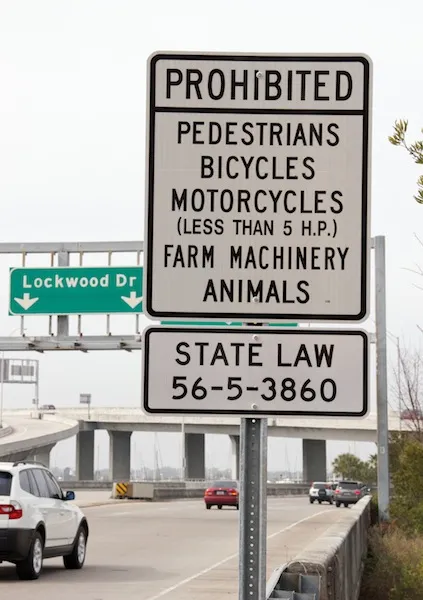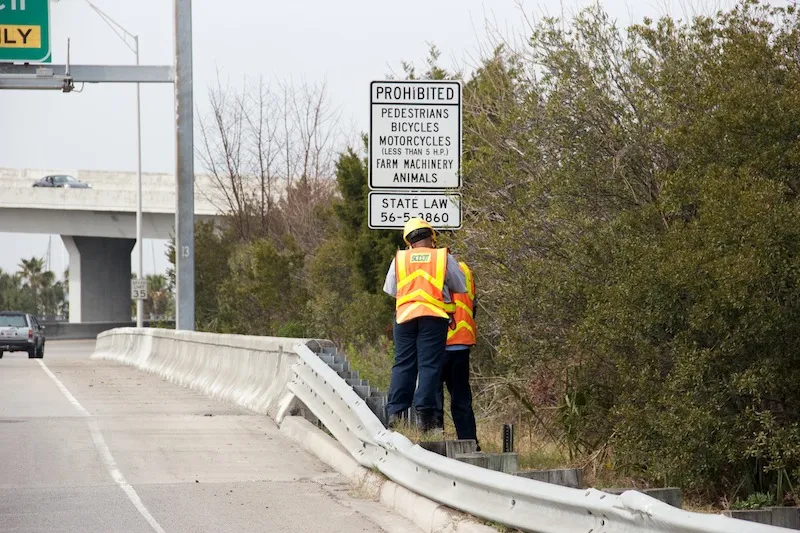The City of Charleston and the South Carolina Department of Transportation have closed the James Island Connector, a truncated segment of Interstate 526, to bicyclists and pedestrians. While not an official bike route, local law enforcement never actively kept cyclists and pedestrians from using the route.
The JIC as it is known locally was constructed 18 years ago, and while lacking a true bike lane, it has been used — as the name suggests — as a connector from the mainland to the island community. While bicyclists and pedestrians were never “encouraged” to use it, the locals say it was more of a turning a “blind eye” approach that actually worked reasonably well, at least until a recent accident that resulted in the death of a 54-year old cyclists last summer.
Now signs are posted that state that those violating the law could face fines and jail time, and according to Tom Bradford of Charleston Moves those signs could make the route more dangerous to riders. “The signs could give the more unruly motorist on the JIC the go ahead that they can do something bad to a cyclist,” Bradford told BikeRadar. “The sense of danger is heightened because of it.”
Local riders admit that the JIC is far from ideal, but there are few alternative options for cyclists to get to James Island. “There really isn't any totally safe route to James Island, the ‘Connector’ represents the safest option to use and the best way to travel between Charleston and James Island, and it is used frequently by cyclists,” says J. Michael Salley, President of Coastal Cyclists of Charleston.
He tells BikeRadar that this new development regarding the ban has already drawn a great deal of attention to the issue. “The cycling community has already begun to mobilize and is currently deciding the best response to this situation,” said Salley. “The Board of the Coastal Cyclists has just recently formed our Advocacy Committee for the sole purpose of responding to these types of issues. This Committee will interface with and fully support the activities of the numerous organizations who work on the advocacy side of the equation.”

Local law enforcement will now enforce the prohibition on the JIC, which leaves essentially no option for local cyclists
For the meantime local cyclists have no option, Bradford says that for many individuals who depend on a bicycle are essentially stranded. The only alternative route for riders is actually the Wappoo Cut Bridge, which Bradford said he wouldn’t ride. He had noted that even as an experienced rider he found the skinny sidewalks very close to traffic as being worse than the JIC.
The irony, according to locals, is that Charleston has made great strides otherwise to become more bicycle friendly. The city currently is currently a League of American Bicyclists Bronze Level City.
There are other problems including infrastructure, according to Salley, but the bigger issue is the perception of cyclists by those who don’t ride. “We need a sort of ‘cultural reorientation’ to change the perceptions and attitudes of the broader community regarding cycling and more importantly, the role that exercise plays in creating a healthier lifestyle for all of us," he said. "Many times, we cyclists are looked upon with a certain degree of scorn and sometimes, animosity. We in the cycling community, realize our obligation to do all that we can to change these perceptions, and we are committed to working toward that end.”
Perhaps with that change, roads won’t be closed and viable routes will be open, said Bradford.
